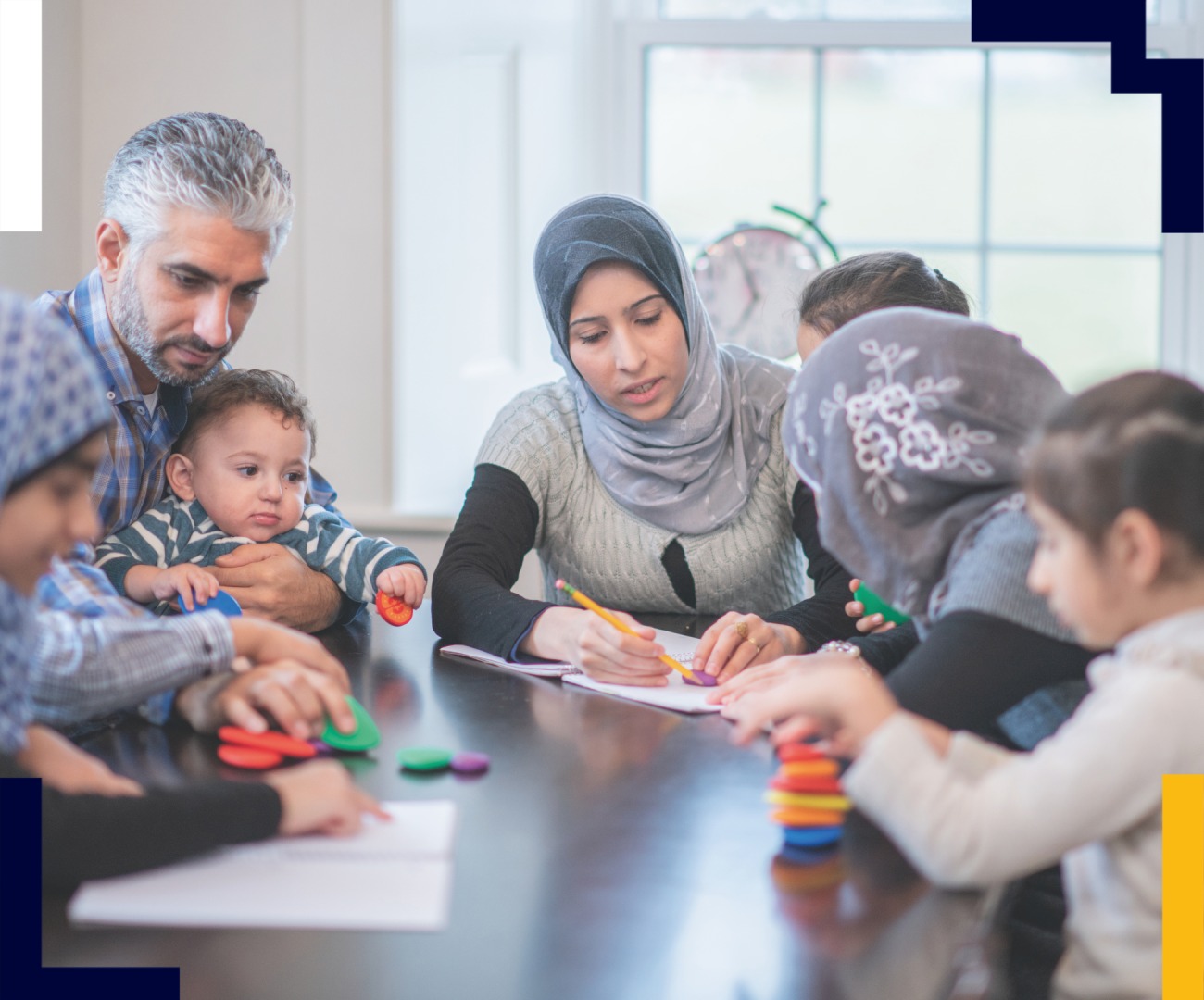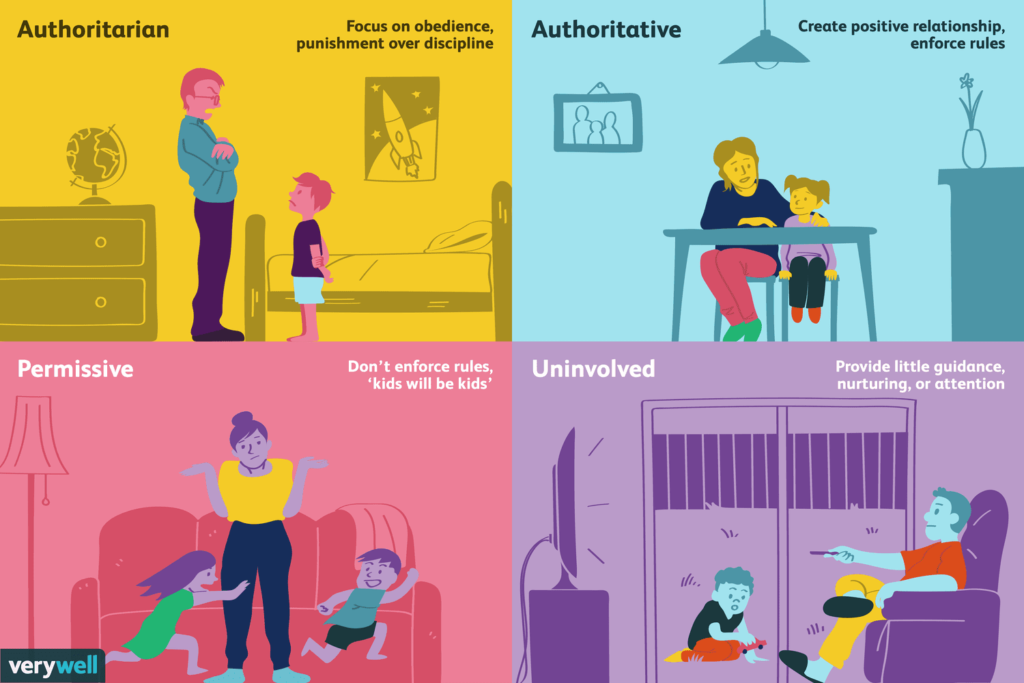Principles of Prophetic
Parenting
Children are a blessing from Allah (swt) to parents. We should always remember our children are an amanah (a trust) given to us by Allah (swt). Therefore, it is our duty to raise children according to the guidelines of the Quran and the teachings of the Prophet (saw).
This article is a summary of the “Principles of Prophetic Parenting” seminar series which was presented at Ilim College. The article provides some guidance on parenting according to the Prophetic model, and some useful tips of how we can raise our children to be well-balanced Muslims.
What is Fitrah?
Fitrah is the innate and universal predisposition of our souls (‘ruh’) and hearts to believe in One God and the inclination for goodness.
Prophet Muhammed (saw) says that ‘Every new-born child is born in a state of fitrah. Then his parents make him a Jew, a Christian or a Magian…’ (Bukhari and Muslim)

Children are born with the inclination towards believing in One God (fitrah). Parents are the first and main architects and teachers (‘Murabbi’) of their child’s belief. What a child learns from their parents can remain with them for life and can lead to their success or doom in akhirah (afterlife)
Prophet Muhammed (saw) states, “Every one of you is a guardian and is responsible for his charges: The Imam (ruler) of the people is a guardian and is responsible for his subjects; a man is the guardian of his family (household) and is responsible for his subjects; a woman is the guardian of her husband’s home and of his children and is responsible for them; and the slave of a man is a guardian of his master’s property and is responsible for it” (Bukhari)
Islam considers children to be an amanah (trust) given to the family and says it is fard (obligatory) for the family to raise a child in a righteous manner. One should not favour one child over another. In Islam, both male and female children should be treated equally and should be loved and cherished. Children have certain rights over their parents; it is the family’s obligation to shelter, feed, clothe, educate, support, nurture, and love them.
In Islam, it is the right of every child to be treated with kindness, mercy and fairness. Although there are many parenting styles, showing emotional understanding towards children will help them become more cooperative, mature and confident people
Raising and educating children is one of the duties required upon parents. Allah (swt) has enjoined this in the Qur’an, “O you who believe! Ward off yourselves and your families against a Fire whose fuel is men and stones, over which are (appointed) angels stern (and) severe, who disobey not, (from executing) the Commands they receive from Allah, but do that which they are commanded” (Tahreem: 6)
Different parenting styles and how a child may be impacted

(The 4 Types of Parenting Styles and How Kids Are Affected, Amy Morin, LCSW, 2022)
- The Authoritarian Parent
Common traits:
– High demandingness, low responsiveness
– Enforces strict rules with little consideration of their child’s feelings, social-emotional
and behavioral needs
– Often says “because I said so” when their child questions the reasons behind a rule or consequence
– Communication is mostly one-way — from parent to childAs an outcome the child maybe:
– At a higher risk of developing self-esteem problems because their opinions aren’t valued.
– May become hostile or aggressive.
– Rather than thinking about how to do things better in the future, they often focus on the anger they feel toward their parents or themselves for not living up to parental expectations. - The Permissive Parent
Common traits:
– High responsiveness, low demandingness
– Communicates openly and usually lets their children decide for themselves, rather than giving direction
– Rules and expectations are either not set or rarely enforced
– Typically goes through great lengths to keep their children happy, sometimes at their own expenseAs an outcome the child maybe:
– More likely to struggle academically
– Exhibit more behavioural problems as they don’t appreciate authority and rules.
– They often have low self-esteem and may report a lot of sadness. - The Neglectful Parent
Common traits:
– Low responsiveness, low demandingness
– Lets their children mostly fend for themselves, perhaps because they are indifferent to their needs or are uninvolved/overwhelmed with other things
– Offers little nurturance, guidance and attention
– Often struggles with their own self-esteem issues and has a hard time forming close relationships
As an outcome the child maybe:
– Likely to struggle with self-esteem issues
– Tend to perform poorly in school
– Exhibit frequent behavior problems and rank low in happiness - The Authoritative Parent (style which is most conducive of the Prophetic model)
Common traits:
– High responsiveness, high demandingness
– Sets clear rules and expectations for their children while practising flexibility and understanding
– Communicates frequently; they listen to and take into consideration their children’s thoughts, feelings and opinions
– Allows natural consequences to occur (e.g., child fails a test when they don’t study), but uses those opportunities to help their children reflect and learn

As an outcome the child maybe:
– Most likely to become responsible adults who feel comfortable self-advocating and expressing their opinions and feelings
– Tend to be happy and successful
– More likely to be good at making sound decisions and evaluating safety risks on their own
Prophet Muhammed’s (saw) attitude and behaviour towards children was one which was full of compassion, love, justice, and mercy. Despite being the leader of the Muslims and having the responsibility to leading them into battle, he would adopt a playful and caring attitude when it came to spending time with children. His softness and leniency towards children serve as a prime example on how we should behave and treat children.
There came a few desert Arabs to the Prophet (saw) and said, “‘Do you kiss your children?’ He (saw) said, ‘Yes.’ Thereupon they said, ‘By Allah (swt) but we do not kiss our children.’ Thereupon the Prophet (saw) said, ‘Then what can I do if Allah (saw) has deprived you of mercy?’ …” (Sahih Muslim).
Expressing how you feel and displaying love towards your child is a great way to model mercy and compassion so that our children grow to become loving and nurturing adults.
Written by Sibel Balci
Islamic Education Coordinator(Dallas Primary Campus)

Prospectus
At Ilim College, our goal is simple. To enhance our educational mission and firmly connect it to the wider Australian community. Want to learn more about Ilim College? Find out more information about our curriculum and community in our prospectus.


